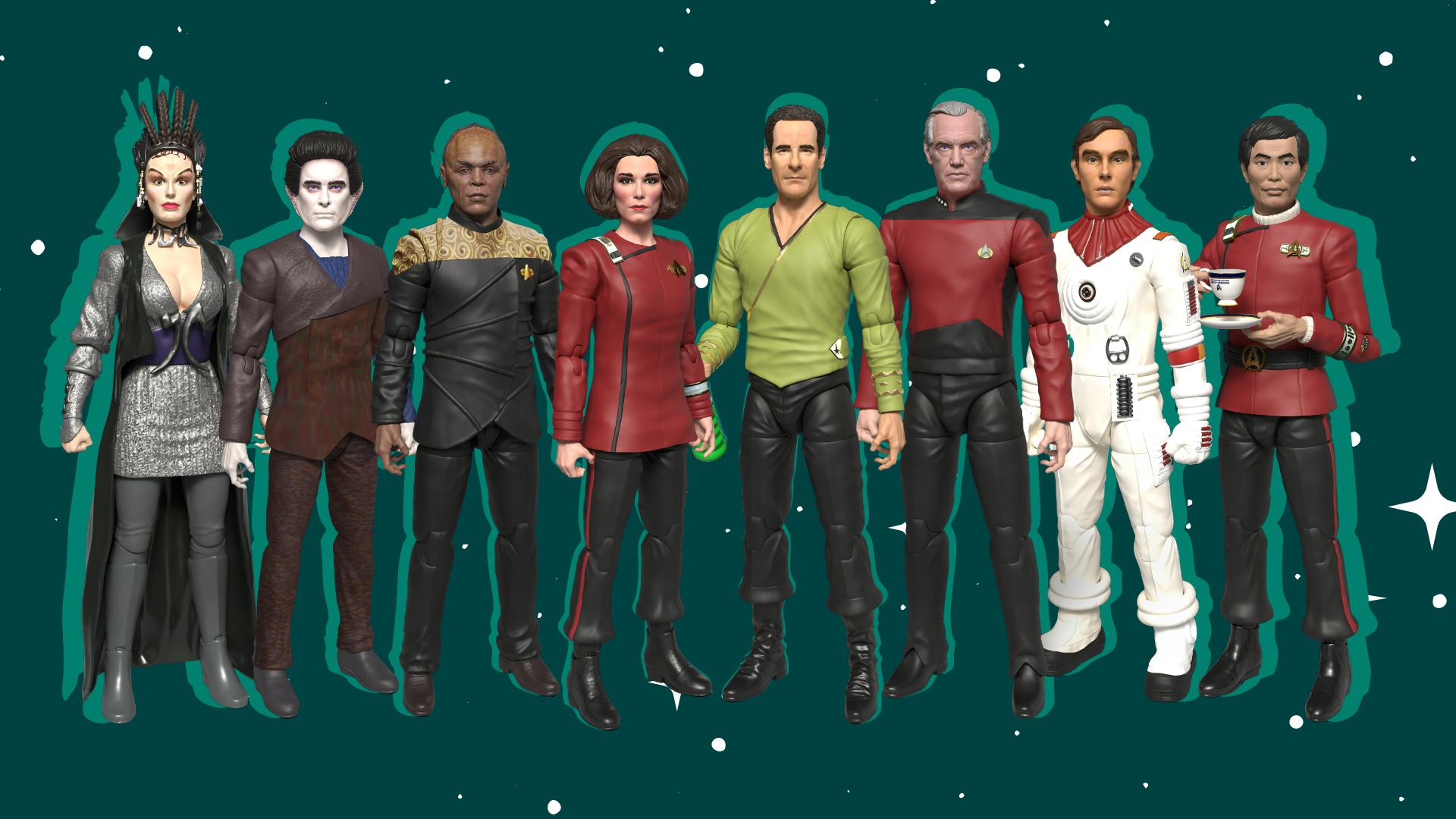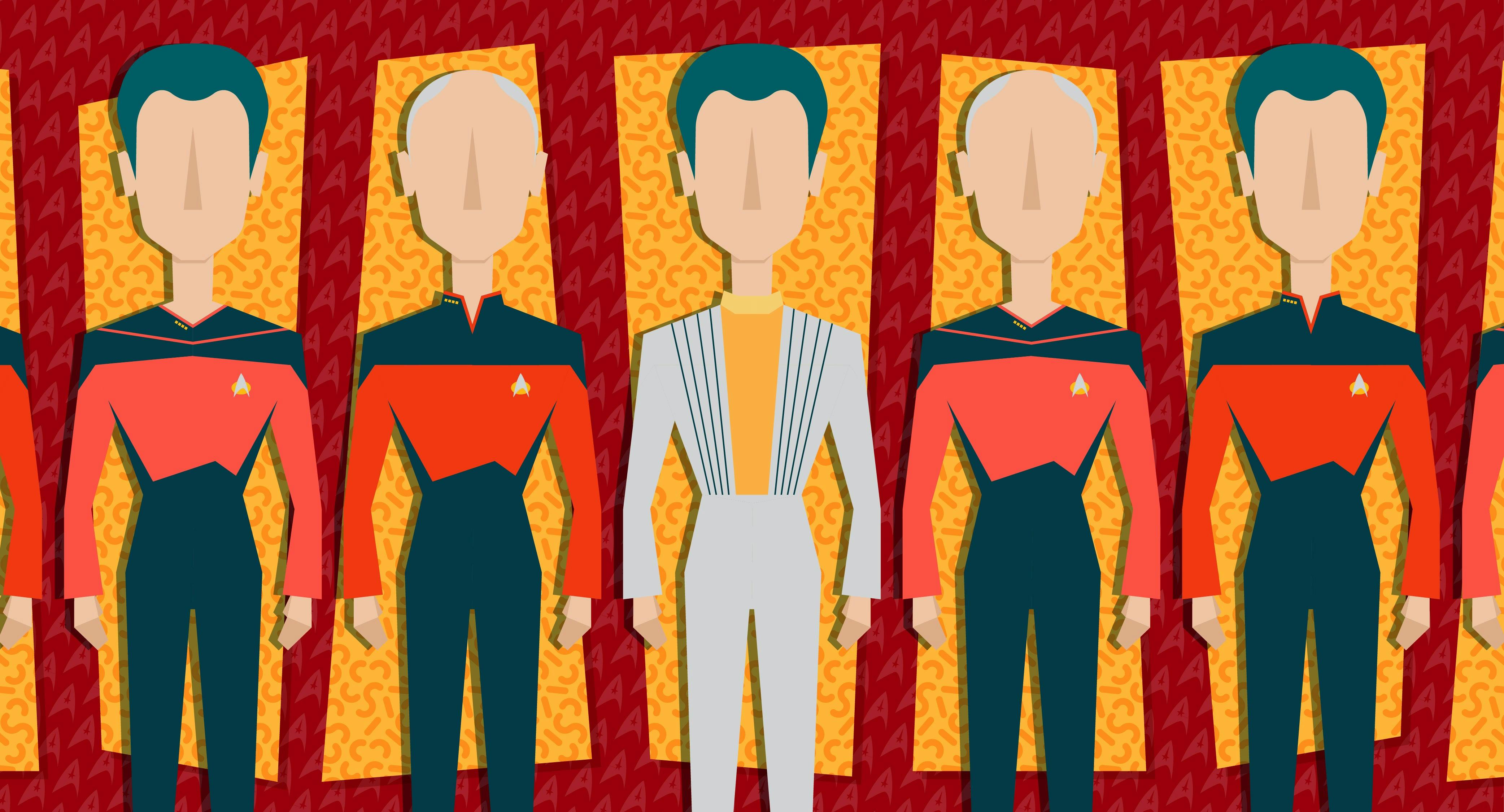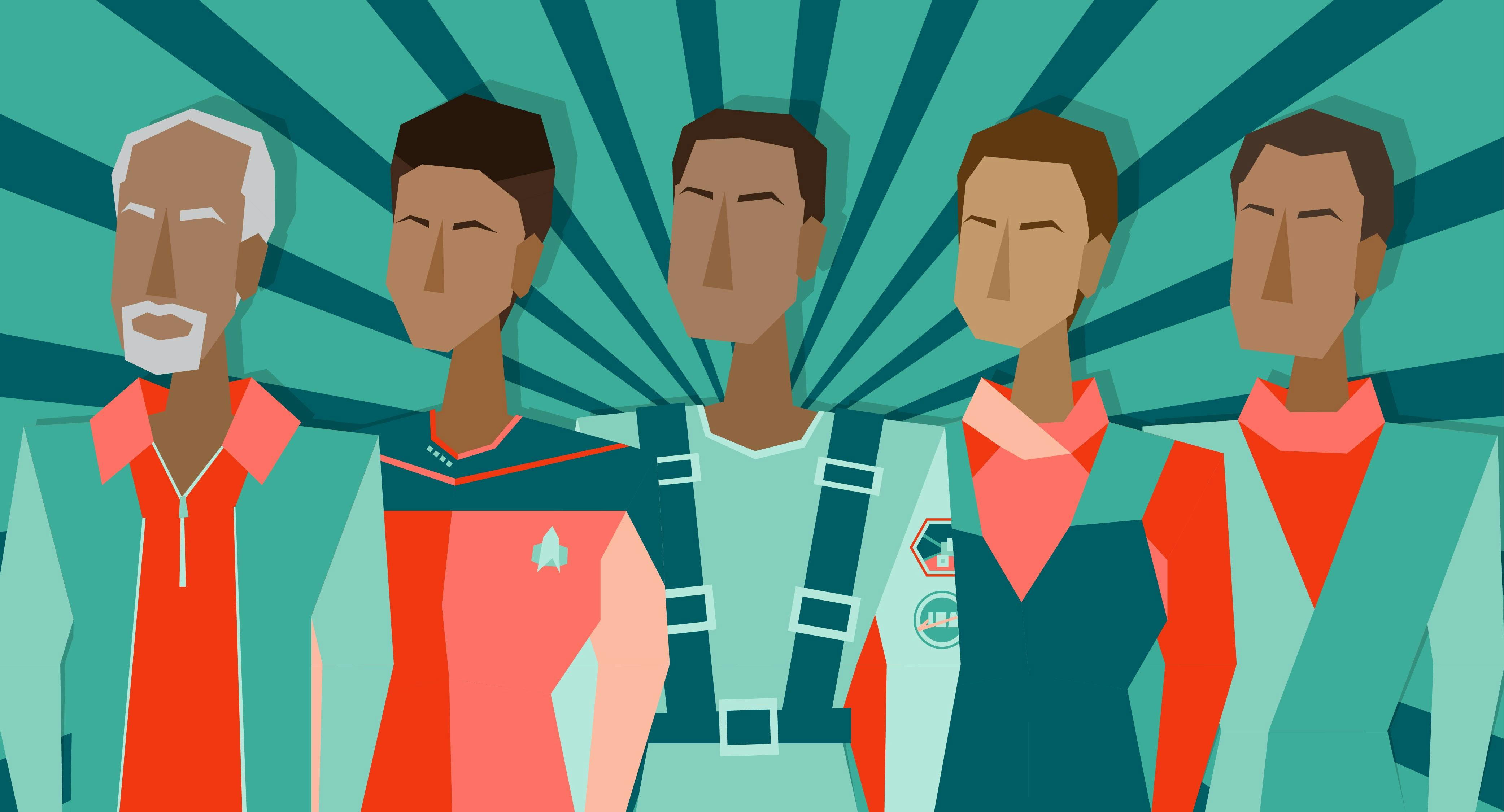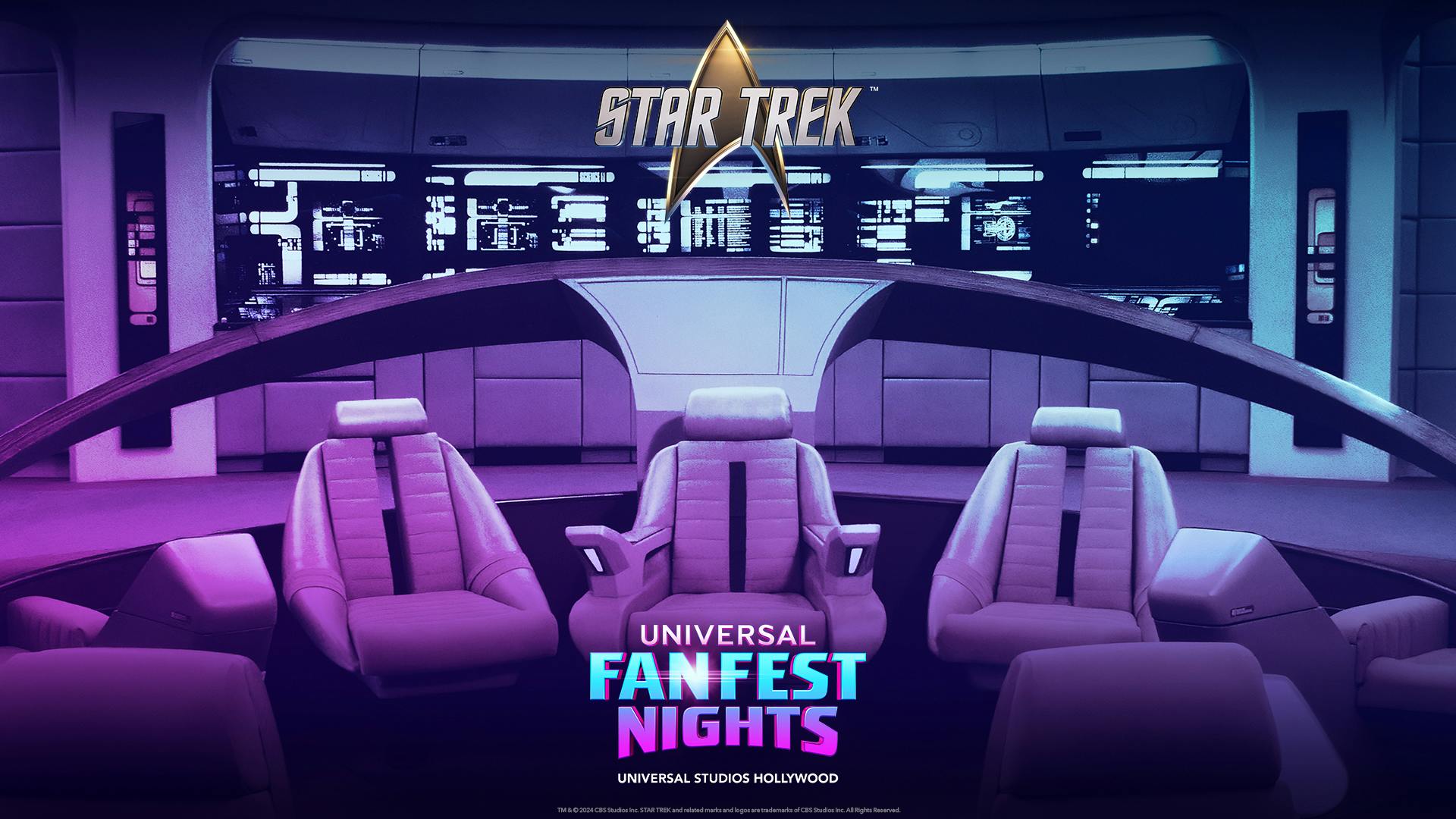Published May 11, 2023
Hugh Serves as an Important Reminder of Our Capacity for Compassion
On the anniversary of its first airing, the episode 'I, Borg' showcases the Enterprise's humanity at its finest.
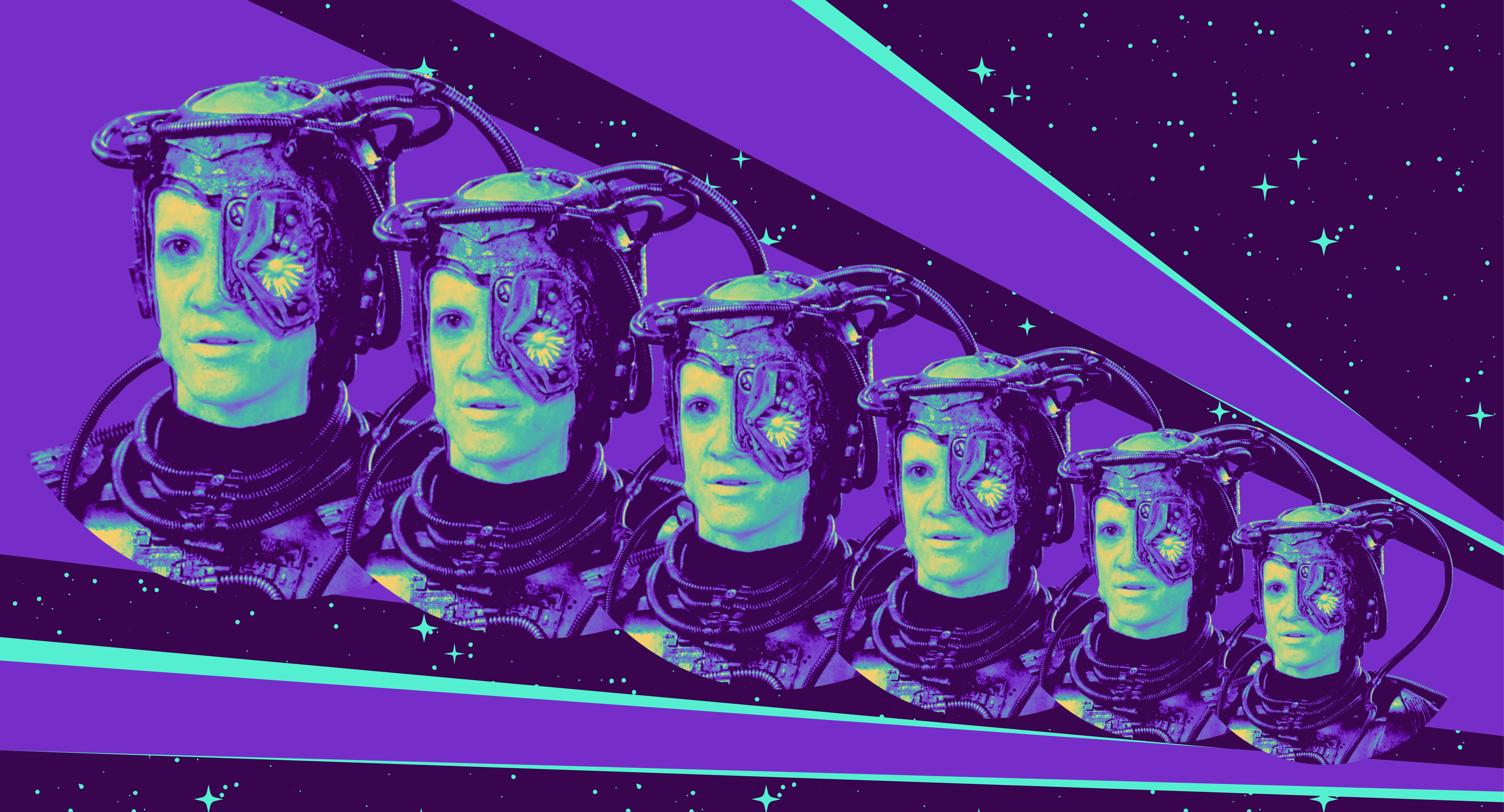
StarTrek.com
When a distress call leads the Enterprise-D to find a crashed Borg ship, Dr. Crusher insists on saving the sole survivor — an injured drone. While the Enterprise crew is at first distrustful of the drone, they come to empathize with the Borg Third of Five, now known as Hugh, and in turn, Hugh comes to care for his rescuers.
The episode “I, Borg” from Star Trek: The Next Generation stands out amidst a sea of fantastic TNG episodes. Like most great Star Trek episodes, it rises beyond a deceptively simple premise — the Enterprise crew saves a Borg drone — while they aren’t sure how to proceed, the crew ultimately tackles far greater themes and issues. From the newly-named Hugh’s journey back towards individuality to the decisions Captain Picard is faced with making, the question of humanity remains at the heart of the episode.
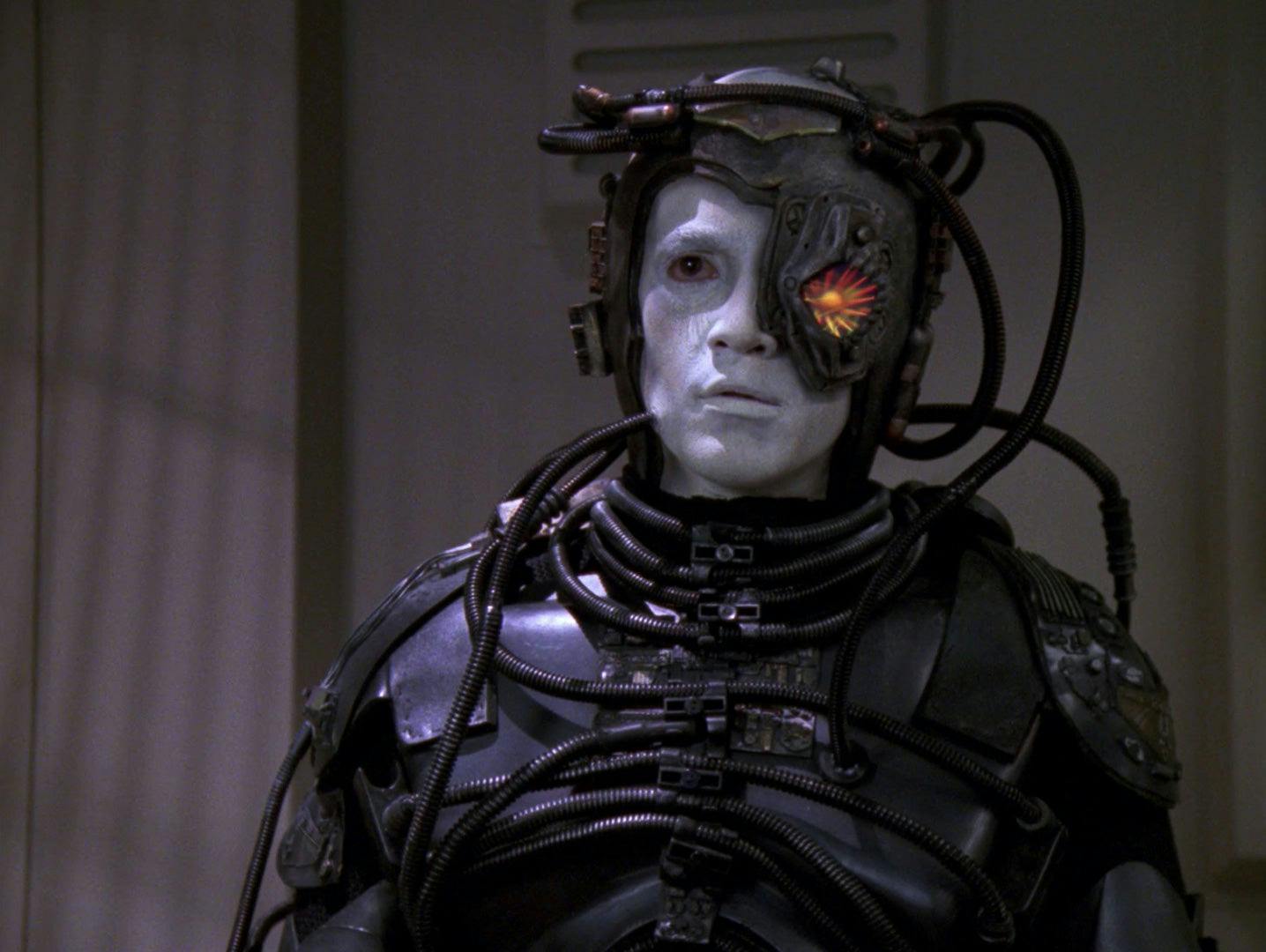
StarTrek.com
Of course, to talk about humanity in this episode, we must first start with Hugh. He is the beating heart of this episode, anchored by a lovely performance from Jonathan del Arco, who returns to the Star Trek universe in Star Trek: Picard. Unlike the terrifying Borg that kidnapped and tortured Picard and threaten the universe, Hugh poses no threat. He’s injured when he’s brought on board by an insistent Dr. Crusher, and though he gives an attempt at the “Resistance is futile” schtick, he eventually grows curious about human behavior displayed by those around him.
Hugh’s humanity comes to him through questioning. He begins to doubt the Borg Collective as he asks earnest, polite questions about human behavior that he doesn’t understand. He doesn’t demand answers, but instead listens to what Geordi and others tell him and responds to that. By changing his worldview, based on what he learns, and in response to the compassion he receives, Hugh’s journey is one that is built on a foundation of communication and understanding, rather than him simply parroting back ideas without fully understanding them.
Hugh: Are you ever lonely?
Geordi: Sometimes. But that's why we have friends.
Hugh: Friends?
Geordi: Sure. Someone you talk to, who will be with you
when you're lonely. Someone who makes you feel better.
Hugh: Like Geordi and Hugh.
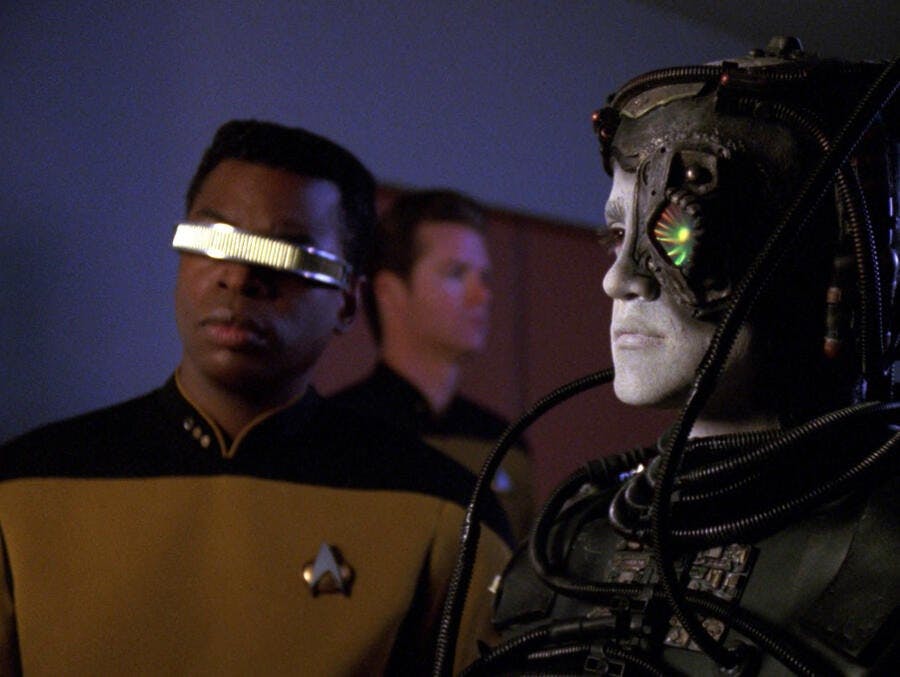
StarTrek.com
Compassion is key to both being a better human and to Star Trek’s view of humanity. Hugh’s humanity is firmly rooted in the very ideals, championed by creator Gene Roddenberry, of understanding and communicating through empathy. Not only is he shown compassion which he learns from, but he returns it by forming friendships and, ultimately, returning to the Collective to spare the Enterprise and his new friends from warfare.
Hugh says that the Borg are trying to learn about new cultures through assimilation while trying to defend the Collective, but Geordi counters that by saying that individuality and differences are key to being human. Hugh learns that firsthand, understanding that he can better appreciate his friends and his own humanity through his and their individuality. He becomes more human as he becomes more of an individual, separated from the Collective and their harsh control.
But it is not just Hugh who better understands humanity at the end of the episode. Picard, Geordi, and the rest of the crew also emerge from this encounter as more human, empathetic beings. It is easy for them to first be cold and callous towards Hugh, because they’re dealing with the trauma of their past encounters with the Borg. No one can judge them for being cautious and distrustful.

StarTrek.com
Hugh could have been a pawn for the Enterprise to use to destroy the Borg — the crew’s initial plan for him — by planting a virus in him, he could be returned to the crash site, rescued by the Collective, and then be an unwitting player in the Borgs’ demise. That is a more cunning strategy than just fixing him and leaving him behind, but it is also deeply inhumane. As for the Borg, we know they are a cruel enemy. Their torture of Picard leaves the captain with scars, and they have killed and destroyed countless civilizations. They must be stopped, but at what point does stopping an enemy mean that you ultimately turn into the very same enemy guilty of ending entire species?
Picard is reticent to believe his crew’s pleas that Hugh deserves more than to be used as a pawn, even as more and more of them become sympathetic towards the Borg drone. Upon meeting and talking to Hugh, Picard sees that he is an individual, slowly freeing himself from the Borg’s control, which allows his own rage to waver. He can hate the Borg for what they’ve done, but he can also display compassion for a solitary soldier who isn’t to blame for all their deeds.
If he had chosen to send Hugh back, Picard would’ve shown the same cruelty that the Borg showed him, and that is not who Picard is. Picard is a captain who displays humanity and compassion. His own past can temporarily shake him off that path, but he always returns to it. By making the harder choice to not exact revenge and instead extend a hand of friendship to Hugh, he shows himself to be the best of us. Similarly, Geordi and Guinan both have reasons to hate the Borg, but they find empathy for Hugh, with Geordi even finding friendship with the former drone.
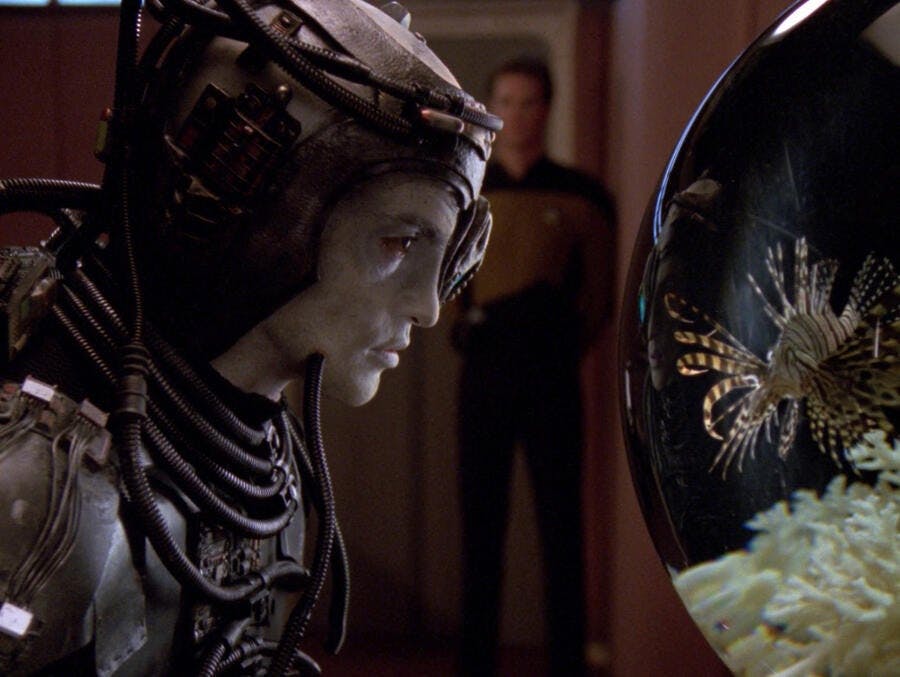
StarTrek.com
Geordi also extends a marker of humanity and individuality by offering Hugh a name beyond his designation. Originally referring to himself as Third of Five, Hugh takes to the name offered to him by Geordi. Geordi makes a point of making sure Hugh likes his new name, rather than forcing it upon him. That respect for Hugh’s humanity is key to conveying the compassion that sparks the self-journey that Hugh goes on.
Ultimately, Hugh is offered safety with the Federation. While he wants to stay with his newfound friends and continue his journey of self-discovery, Hugh realizes he will endanger the Enterprise if the Borg returns to the crash site to find him missing. He opts to be returned to the site to be "rescued" by the Collective. This self-sacrifice is a deeply human and deeply compassionate act. Hugh is returning the same compassion given to him by offering to save the lives of those who saved his. He is truly human, in every way.
As Captain Kirk famously said, when burying Spock, “Of all the souls I have encountered on my travels, his was the most human.” Despite the Borg’s lack of respect for humanity, Hugh finds his through the tenets of what makes us better — communication, empathy, and compassion. Hugh’s journey to becoming human is not only a testament to the power of individuality, but a reminder to the Enterprise, and to viewers, on what it means to be human.
My First Contact: Jonathan Del Arco
This article was originally published on January 9, 2020.
